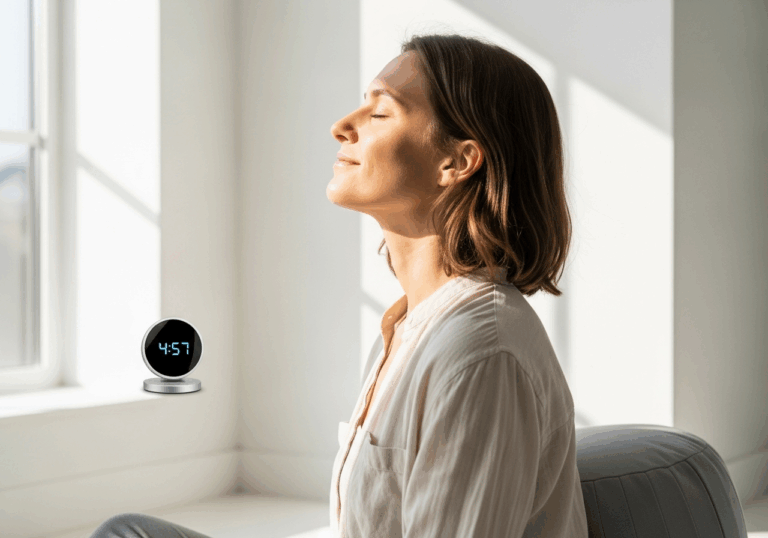Science-Backed Tips
Enhancing Doctor-Patient Communication
8-week LKM reduces anxiety and boosts trust by 30%
📊 Did you know?
💡 Why It Matters
1️⃣
Improved communication can lead to better patient outcomes and satisfaction.
2️⃣
Reducing defensive behavior may lower healthcare costs associated with unnecessary tests.
3️⃣
Enhanced trust fosters stronger doctor-patient relationships, improving overall healthcare quality.
✅ Try These Micro-Tips
🎯
Practice loving-kindness meditation for 20 minutes daily to enhance empathy.
🎯
Engage in reflective listening exercises with patients at least twice a week.
🎯
Participate in peer discussions about communication strategies monthly.
🎯
Attend workshops on interpersonal skills annually to reinforce learning.
📚 The study
Moreover, there were notable increases in trust and a sense of professional calling compared to their counterparts in the control group.
This is crucial because improved communication not only enhances social confidence and empathetic interactions but also leads to better patient outcomes and satisfaction.
By reducing defensive behaviors, such as unnecessary tests and procedures, healthcare costs can be lowered, ultimately benefiting both patients and the healthcare system.
Enhanced trust between doctors and patients fosters stronger relationships, which is vital for delivering high-quality healthcare.
The findings underscore the importance of integrating mindfulness practices like LKM into medical training and practice, paving the way for a more compassionate and effective healthcare environment.
❓ Frequently Asked Questions ❓
Learn more
What is Loving-Kindness Meditation (LKM)?
Loving-Kindness Meditation (LKM) is a practice that involves mentally sending goodwill, kindness, and warmth towards others. It aims to cultivate an attitude of love and compassion, enhancing emotional well-being and interpersonal relationships.
How does LKM affect communication anxiety among physicians?
The 8-week LKM intervention significantly reduced communication anxiety among physicians. This reduction allows doctors to engage more openly and effectively with their patients.
What impact does LKM have on defensive behavior in medical practice?
LKM has been shown to decrease defensive behavior in physicians, which can lead to more thoughtful and patient-centered care. This reduction helps in minimizing unnecessary medical tests and procedures.
How does LKM influence trust between doctors and patients?
The practice of LKM enhances trust between physicians and their patients, fostering stronger relationships. Increased trust can lead to improved patient satisfaction and adherence to treatment plans.
What are the benefits of improved interpersonal well-being for physicians?
Improved interpersonal well-being enhances social confidence and empathetic interactions among physicians. This can lead to better teamwork and collaboration in healthcare settings.
How can LKM improve patient outcomes?
By reducing communication anxiety and enhancing trust, LKM can lead to more effective doctor-patient interactions. Improved communication is associated with better patient outcomes and satisfaction.
What are some practical ways for physicians to practice LKM?
Physicians can practice LKM for 20 minutes daily to enhance empathy and emotional resilience. Engaging in reflective listening exercises and peer discussions can further reinforce these skills.
How often should physicians engage in reflective listening exercises?
Physicians should aim to engage in reflective listening exercises with patients at least twice a week. This practice helps to build rapport and understanding in patient interactions.
What role do workshops play in enhancing interpersonal skills for physicians?
Attending workshops on interpersonal skills annually can reinforce learning and provide new strategies for effective communication. These workshops help physicians stay updated on best practices in patient interaction.
Why is it important to reduce defensive behavior in healthcare?
Reducing defensive behavior in healthcare can lower costs associated with unnecessary tests and procedures. It also promotes a more patient-centered approach, improving overall healthcare quality.





